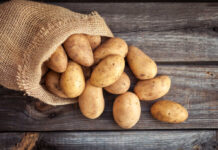
According to new research, more and more people below 50 are getting cancer every day. One prominent theory suggests that a diet high in ultra-processed foods could be partially responsible for high rates of early-onset cancer, especially the types related to the digestive system.
In this article, we will examine the role of ultra-processed foods in increasing your cancer risk.
What Are Ultra-processed foods?
Ultra-processed foods consist mainly of substances extracted from foods, with additives such as preservatives and artificial colors. These foods include instant ramen, hot dogs, cookies, and soft drinks.
Why Might Ultra-Processed Foods Increase Cancer Risk?
Ultra-processed foods are often convenient, affordable, and tasty. However, they come with two potential problems, that is, excess calories and insufficient fiber.
According to a 2019 study, 20 volunteers were put on a diet of just ultra-processed foods or whole foods for two weeks, and then they would switch to the other diet for two more weeks. By the end, it was discovered that people on the ultra-processed diet ate about 500 more calories each day and gained two pounds.
Francesca Castro, MS, RDN, CDN, a clinical research dietitian nutritionist, said at least 13 cancers have been linked with people with a body mass index (BMI) considered obese or overweight (BMI 25 or greater). She also said dietary patterns packed with ultra-processed foods also contain less fiber.
Since fiber has been shown to safeguard against certain cancers, including colorectal and breast cancer, eating a low-fiber diet could increase cancer risk. Castro said most Americans fall short of the recommended daily dietary fiber amount of 25-36 grams for adults.
Can Improving Your Diet Reduce Cancer Risk?
There’s no way to guarantee that making lifestyle changes will prevent cancer. Luke Chen, MD, a California-based medical oncologist and hematologist, said the best cancer prevention is taking charge of your health and addressing any uncontrollable risk factors.
He also said this means getting recommended cancer screenings, exercising regularly, eating a balanced diet, not smoking, and drinking alcohol in moderation. Specific vaccines can also safeguard against cancer-causing viruses such as the hepatitis B virus (HBV) and the human papillomavirus (HPV).
Furthermore, many cancer-prevention organizations recommend diets rich in whole grains, fiber, fruit, and non-starchy vegetables and low in added sugar, refined grains, and processed meats.
Conclusion
Multiple factors beyond your control could result in cancer, such as genetics. However, you can speak to a healthcare provider to help you create realistic goals for dietary or lifestyle changes to reduce your risk.


















